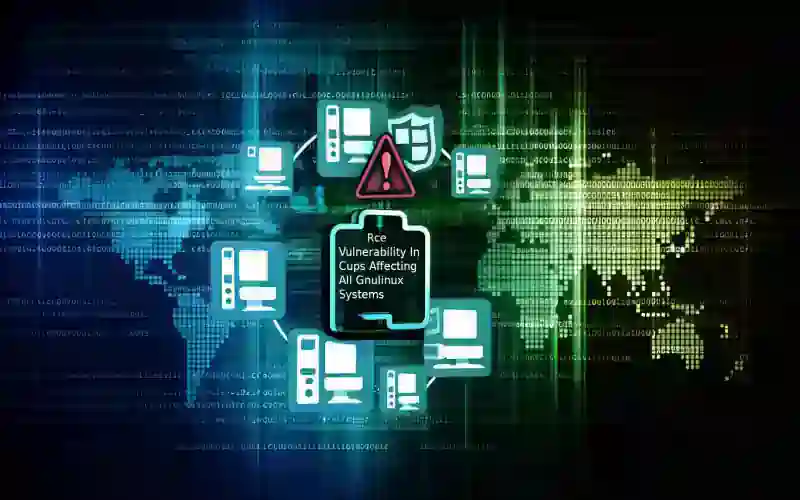
“Unmasking the Hidden Dangers: Simone Margaritelli Exposes Critical RCE Flaws in CUPS, Urging Immediate Action Across GNU/Linux Systems”
Exploring the Impact of Simone Margaritelli’s Discovery of RCE Vulnerabilities in CUPS on GNU/Linux Systems
In a startling revelation, Simone Margaritelli has uncovered a severe remote code execution (RCE) vulnerability in the Common Unix Printing System (CUPS), which affects all GNU/Linux systems. This discovery, which includes four distinct CVEs, has sent shockwaves through the cybersecurity community, highlighting the precarious state of network security in widely used systems.
Margaritelli’s findings expose vulnerabilities that allow unauthenticated attackers to execute arbitrary commands on affected systems. The technical details he provided show how these vulnerabilities can be exploited, particularly on a fully patched Ubuntu 24.04.1 LTS system. This underscores a troubling reality: even the most up-to-date systems are at risk.
The specific vulnerabilities identified are alarming. For instance, CVE-2024-47176 involves the cups-browsed service, which binds to UDP port 631 and trusts packets from any source. This could trigger a malicious Get-Printer-Attributes IPP request from an attacker-controlled URL. Similarly, CVE-2024-47076 reveals that the libcupsfilters library fails to validate or sanitize IPP attributes returned from an IPP server, allowing attacker-controlled data to infiltrate the CUPS system.
Moreover, CVE-2024-47175 and CVE-2024-47177 involve the libppd library and the cups-filters package, respectively, both of which allow for the injection of attacker-controlled data that can lead to arbitrary command execution. These vulnerabilities can be exploited remotely via the internet by sending a UDP packet to port 631 or through local network attacks by spoofing zeroconf/mDNS/DNS-SD advertisements.
The extent of the exposure is vast. Margaritelli’s scan of public internet IPv4 ranges resulted in connections from hundreds of thousands of devices, indicating a widespread vulnerability. According to Shodan, approximately 73,000 CUPS servers are exposed, each accepting potentially malicious packets via UDP port 631.
The response to these findings has been less than satisfactory. Although some fixes have been pushed by the OpenPrinting project, Margaritelli expressed frustration with the responsible disclosure process, pointing out delays and disregard from developers. This situation is exacerbated by an initial CVSS score of 9.9 estimated by a Red Hat engineer, reflecting the severity of the threat despite some debate over whether this score fully captures the potential impact.
Given these dire circumstances, urgent action is required. Users are advised to disable and remove the cups-browsed service if it is not essential, update their CUPS package through security updates promptly, and block all traffic to UDP port 631 as well as DNS-SD traffic. Margaritelli goes further in his recommendations, suggesting the removal of all CUPS services, binaries, and libraries from systems and advising against the use of zeroconf/avahi/bonjour listeners.
This discovery not only highlights significant vulnerabilities in a critical system component but also raises broader concerns about the security posture of Linux systems as a whole. It serves as a stark reminder of the ongoing challenges in cybersecurity and the need for constant vigilance and proactive measures to protect against such vulnerabilities. As we move forward, it is crucial for both developers and users to collaborate more effectively in addressing these security issues to safeguard their systems against potential threats.














